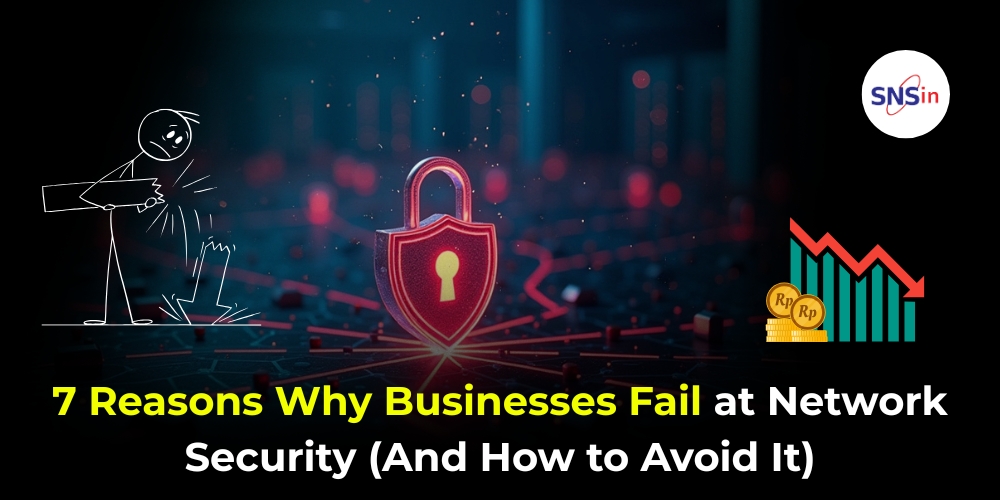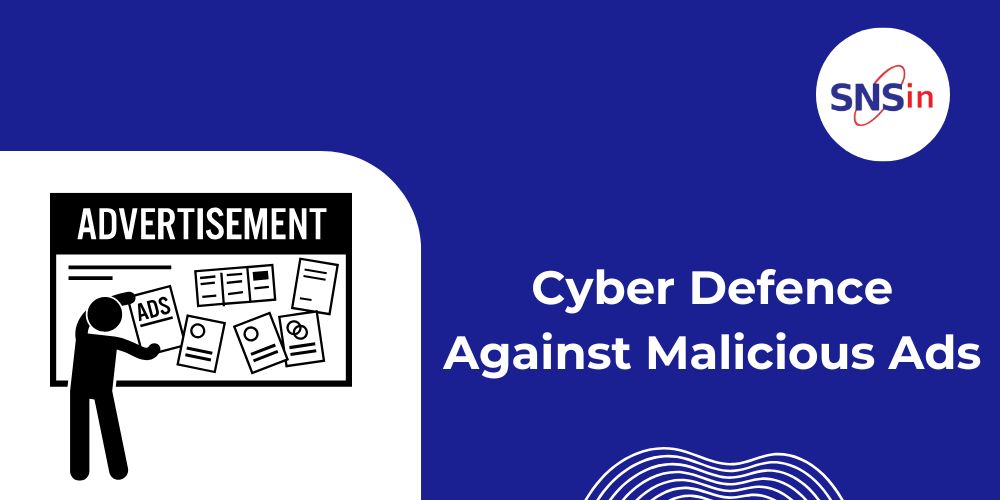In the age of hyperconnectivity, securing your network is no longer just an IT concern — it’s a business imperative. Yet, companies of all sizes continue to fall victim to cyberattacks. Why? Because while investing in the latest firewall might feel like a silver bullet, the truth is that most failures stem from simple, human-sized mistakes.
Let’s walk through seven reasons why businesses often stumble in their network security strategies — and how you can steer clear of the same traps.
1. Security Is Treated Like an Afterthought:
Picture this: A company builds a gorgeous new website, rolls out a cloud-based tool, or expands its network — and only after launch day does someone nervously ask, “Wait, is this secure?”
Security, unfortunately, is often left out of initial planning. It’s seen as a roadblock rather than a foundation.
How to Avoid It?
Shift your mindset. Treat security as an essential part of any digital initiative from day one. Involve cybersecurity professionals early in the planning phase. It’s not glamorous, but it could save your business from a breach — and a PR nightmare.
2. Overreliance on Basic Firewalls and Antivirus:
It’s 2025, and if your idea of “security” is a dusty firewall from 2015 and a free antivirus software, we’ve got a problem.
These tools are like having a rusty lock on your front door — decent against amateurs, but laughable against today’s hackers wielding AI-powered attacks.
How to Avoid It?
Invest in modern, layered defenses. Think next-gen firewalls, endpoint detection and response (EDR), intrusion detection systems (IDS), and secure access service edge (SASE). Combine these tools with proactive threat hunting and real-time monitoring.
3. Employees Don’t Know What Phishing Even Means:
Cybercriminals are slick. They don’t just attack systems — they go after your people. Phishing emails that mimic CEOs, fake invoices, or urgent password reset links are still the most effective bait.
And if your employees can’t spot the trap, they’re going to fall into it.
How to Avoid It?
Educate and test. Regular cybersecurity awareness training can dramatically reduce human error. Run mock phishing simulations. Celebrate the savvy employees who report threats — and use mistakes as teaching moments, not punishment opportunities.
4. “Set It and Forget It” Mentality:
Security isn’t a microwave dinner. You can’t just push a few buttons and walk away. Yet many businesses set up tools or policies — then forget about them until a breach occurs.
Security tools need constant updates. Policies need reviews. Threats evolve every day. Your systems must, too.
How to Avoid It?
Conduct quarterly security audits. Review and refresh access controls, update software, and patch vulnerabilities regularly. Stay subscribed to threat intelligence feeds relevant to your industry. Think of your network like a car — regular maintenance keeps it running.
5. Lack of Role-Based Access Controls (RBAC):
Imagine giving every employee the master key to your office. Sounds reckless, right? But that’s exactly what happens when businesses don’t implement role-based access controls. When everyone has access to everything, one compromised account becomes a full-blown disaster.
How to Avoid It?
Implement the principle of least privilege. Ensure employees only have access to the data and systems they need to do their job. Segment your network. Monitor access logs and flag unusual behavior. And when someone changes roles or leaves the company? Revoke their access immediately.
6. Ignoring the Basics: Weak Passwords and Unpatched Systems:
Sometimes, the worst breaches happen because of the simplest oversights. Think “admin123” as a password. Or a forgotten server that hasn’t seen a security patch in five years.
Hackers love this kind of negligence — it’s like leaving your windows open during a storm.
How to Avoid It?
Enforce strong password policies. Better yet, go password less with multi-factor authentication (MFA) or biometrics where possible. Keep an updated inventory of all your systems and devices. Automate patch management to ensure nothing slips through the cracks.
7. No Incident Response Plan in Place:
You’ve been breached. Alarms are ringing. What do you do?
If your answer is “panic,” or “call the IT guy,” you’re already too late. The first few minutes after detecting a breach are critical — and companies without an incident response (IR) plan lose valuable time (and money) figuring out what to do next.
How to Avoid It?
Build and test an IR plan. Identify key roles: who contacts customers? Who reports the breach to authorities? How is data recovered? Run tabletop exercises every six months. When a real breach hits, you won’t be guessing — you’ll be executing.
Bonus Tip: Cybersecurity Isn’t a Solo Sport:
Imagine walking through a dark alley, holding a flashlight with dying batteries, muttering, “I got this.” That’s what it looks like when businesses try to handle network security entirely on their own.
Sure, your in-house IT team might be sharp — they know their way around a firewall and can wrestle with malware on a Monday morning. But cybersecurity today isn’t just about fixing what’s broken. It’s about predicting attacks before they happen, responding in real-time, and constantly staying three steps ahead of ever-evolving threats.
That’s where a Managed Security Services Provider (MSSP) comes in — think of them as your digital night watch, your cyber bodyguard in a tailored suit, watching your back while you sleep. They bring 24/7 monitoring, deep-dive analytics, real-time threat intelligence, and specialized tools most businesses simply can’t sustain internally.
The best part? You don’t have to build a fortress from scratch. You just need the right partner who already knows how to defend one.
So, the next time you think about DIY-ing your cybersecurity, ask yourself this: would you rather go solo in the dark — or roll with a full squad of trained experts with night vision goggles?
Choose wisely.
Final Thoughts: Prevention Is Cheaper Than Recovery:
The average cost of a data breach in India is climbing, with losses running into crores. But more than the money, it’s the trust that gets hit — from customers, partners, and even employees.
Cybersecurity isn’t about being perfect; it’s about being prepared. Businesses fail not because they’re attacked, but because they aren’t ready when they are.
Take action today. Review your systems. Educate your team. Build a culture where security isn’t just an IT checkbox — it’s part of your business DNA.
Looking for help securing your network?
SNS India specializes in building tailored, future-ready cybersecurity solutions for businesses of all sizes. From endpoint protection to enterprise-grade monitoring, we’ve got your back — and your backdoor.
Let’s connect and secure what matters most. Write to us at [email protected]
Author
NK Mehta
![]()




